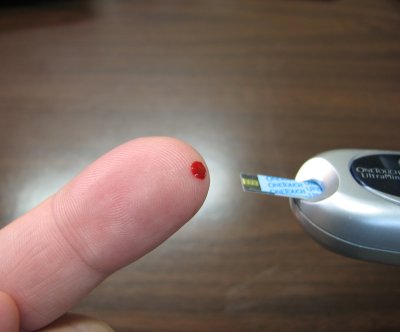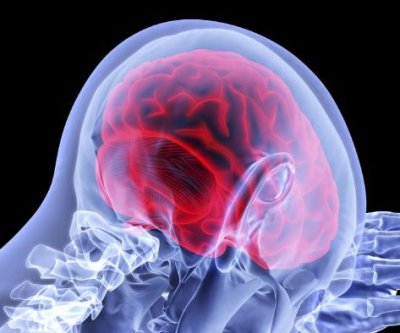
Geriatric conditions pose added danger for older heart patients in ICU
Common geriatric conditions complicate ICU stays, the American Heart Association says in a new scientific statement, requiring doctors to factor in a mix of treatment needs for older adults.
by Brian P. DunleavyDec. 9 (UPI) -- Many older people undergoing treatment in hospital cardiac intensive care units have other health problems, take multiple medications for these conditions and may be frail or have cognitive impairment.
The American Heart Association, in a scientific statement published Monday in the journal Circulation, is urging clinicians to "treat the whole patient" when providing care to these patients.
The statement offers guidance on the management of common geriatric conditions such as frailty and cognitive impairment in patients undergoing treatment for a variety of heart conditions, including heart attack, heart failure and pulmonary embolism.
It notes that many other health problems plaguing older people may inadvertently worsen while in the cardiac ICU.
"Treating the whole patient -- considering their entire health profile, rather than focusing only on their acute cardiovascular event -- is essential for achieving the best possible outcomes among geriatric patients with acute cardiovascular disease," Abdulla A. Damluji, chair of the writing group for the statement and interventional cardiologist at the Inova Heart and Vascular Institute, Falls Church, Va., said in an AHA press release. "Strategies to achieve a wholistic care approach for each patient remains an important goal."
The statement emphasizes that caring for older adults in cardiac ICUs is "markedly different" than caring for younger patients.
Older adults admitted to the cardiac ICU take an average of 12 prescription medications, per AHA data, raising the risk of side effects and drug interactions when they are in the hospital. These patients, the statement advises, may benefit by having some of their medications discontinued while in the ICU, if possible.
Older patients may also experience emotionally and physically disorienting scenarios while in ICU -- bright lights, excessive noise, new medications, dietary changes, sleep disruptions -- that may exacerbate pre-existing problems, such as dementia.
"For vulnerable older adults who may already be experiencing cognitive decline, the environment in the cardiac intensive care unit may deplete already limited coping skills," Damluji said.
The ICU may induce delirium, a state of acute confusion. Delirium is common in older hospitalized people receiving treatment for a critical illness, and it may increase risk for death.
"Reducing the level of sedation used in older patients may help mitigate delirium," Damluji noted.
Extended bedrest, while necessary in some cases, can also be detrimental to patients of all ages. For older, critically ill people, who are often frail, it can significantly worsen weakness and mobility issues.
According to AHA, further deterioration in muscle strength and bone density often occurs after prolonged bedrest, which can also increase risk for falling when people are ready to move around.
Encouraging appropriate physical movement may result in less weakness, an improved ability to walk and less time in the cardiac ICU, the organization said.
Damluji said there has been an emphasis in recent years to integrate geriatric conditions into standard care but "implementation is slow."
"Strategies to achieve a wholistic care approach for each patient remains an important goal to improve care of older patients in the cardiac intensive care unit," he said.
(0) Leave a comment
upi.com/6965000
Latest Headlines

Health News // 23 hours ago
Good workouts might extend a woman's life
If you can tackle a tough workout, that may bode well for your longevity, new research suggests.

Health News // 1 day ago
CBD medicine may help ease another form of seizure
Prescription-grade CBD may help control hard-to-treat seizures caused by a rare genetic disorder, a preliminary study suggests.

Health News // 2 days ago
Clinical trial to test stem cells against type 1 diabetes
Dec. 6 (UPI) -- Researchers believe they may help restore normal immune function in adults with type 1 disease with injections of stem cells, enabling the pancreas to produce insulin.

Health News // 2 days ago
Virtual visits to the doctor good for many with neurological disorders
Dec. 6 -- If you have a neurological disorder, a video chat with your doctor might be as good as an office visit for checking on your condition.

Health News // 2 days ago
BPA levels in humans higher than previously thought, study suggests
Dec. 6 -- Levels of the widely used chemical bisphenol A, or BPA, in people's bodies may be 44 times higher than once thought, according to scientists who say they've created a more accurate way to measure them.

Health News // 2 days ago
FDA testing levels of carcinogens in diabetes drug metformin
Dec. 6 -- Levels of possible cancer-causing chemicals in metformin diabetes medications are under investigation by the U.S. Food and Drug Administration.

Health News // 2 days ago
More than 3,100 new flu cases confirmed by CDC
Dec. 6 (UPI) -- According to the latest FluView report from the Centers for Disease Control and Prevention, released Friday, there were more than 3,100 new cases of the flu confirmed in the U.S. during the week ending Nov. 30.

Health News // 2 days ago
Physicians urge greater focus on role of chronic inflammation in overall health
Dec. 6 (UPI) -- A team of international researchers is calling on physicians to focus more on the diagnosis, prevention and treatment of severe, chronic inflammation, which they say is linked to 50 percent of deaths worldwide.

Health News // 2 days ago
Blood test may predict pace of aging, general health
Dec. 6 -- Imagine a blood test that could spot whether you are aging too quickly. New research suggests it's not the stuff of science fiction anymore.

Health News // 3 days ago
Study questions beta blockers for half of heart failure patients
Dec. 6 -- A new study found that taking beta blockers was associated with an increased risk of hospitalization for patients with a certain form of heart failure.